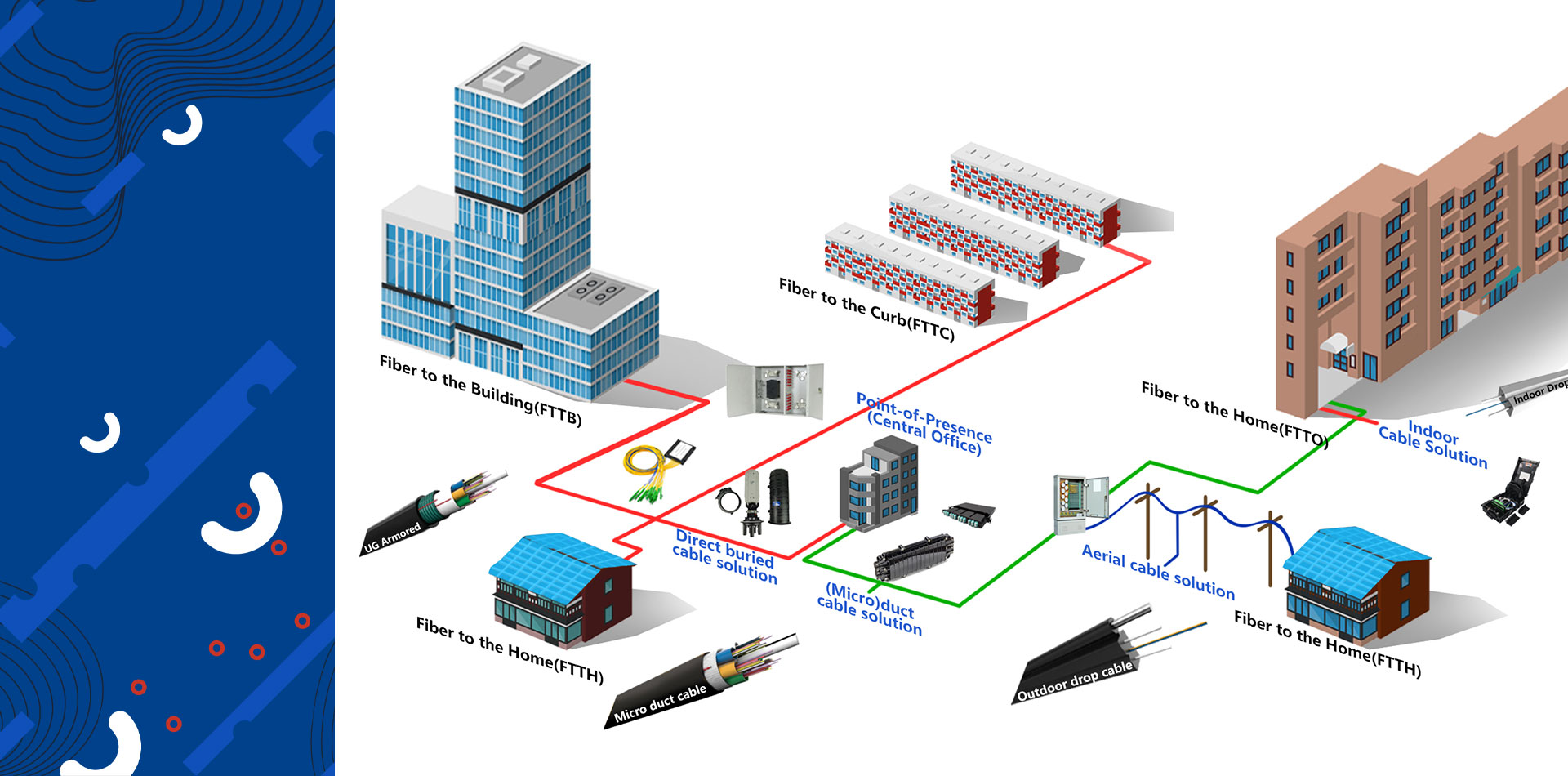ADSS (All-Dielectric Self-Supporting) fiber optic cables are designed for aerial installation and have specific specifications to ensure their performance and reliability. Below is a summary of the common specifications of ADSS fiber optic cables:
- Fiber Count: ADSS cables are available in different fiber counts, ranging from 2 to 288 fibers or more. The fiber count determines the amount of data that can be transmitted through the cable.
- Fiber Type: ADSS cables can use different fiber types, but common types include single-mode fibers for long-distance transmission or multimode fibers for short-distance transmission.
- Cable Diameter: ADSS cables are available in different diameters, typically ranging from 8 mm to 20 mm, with larger diameters providing higher fiber counts and more strength.
- Tensile Strength: ADSS cables must be able to support their own weight and withstand external forces such as wind, ice, or snow. The cable’s tensile strength is achieved through the use of aramid yarn or fiberglass rods, and the strength can range from a few hundred pounds to several thousand pounds.
- Operating Temperature Range: ADSS cables should be able to operate in a range of temperatures, typically from -40°C to +70°C.
- Attenuation: The attenuation of an ADSS cable is the amount of signal loss that occurs as the signal travels through the cable. The attenuation should be low to ensure high-quality data transmission.
- Bandwidth: ADSS cables should have a high bandwidth, which refers to the amount of data that can be transmitted per second. This is typically measured in gigabits per second (Gbps) or terabits per second (Tbps).
- Crush Resistance: ADSS cables should be able to withstand crushing forces, such as those that can occur during installation or when the cable is buried underground.
- Water Penetration: ADSS cables should be designed to resist water penetration, which can damage the fibers and affect data transmission.
Here is a table summarizing the common specifications of ADSS fiber optic cables:
| Specification | Description |
|---|---|
| Fiber Count | 2 to 288 fibers or more |
| Fiber Type | Single-mode or multimode fibers |
| Cable Diameter | 8 mm to 20 mm or more |
| Tensile Strength | A few hundred pounds to several thousand pounds |
| Operating Temp. | -40°C to +70°C |
| Attenuation | Low |
| Bandwidth | High (measured in Gbps or Tbps) |
| Crush Resistance | Able to withstand crushing forces |
| Water Penetration | Resistant to water penetration |
In summary, ADSS fiber optic cables are designed for aerial installation and have specific specifications that ensure their performance and reliability. Manufacturers must consider fiber count, fiber type, cable diameter, tensile strength, operating temperature range, attenuation, bandwidth, crush resistance, and water penetration resistance when designing and producing these cables.
Post time: Apr-12-2023

